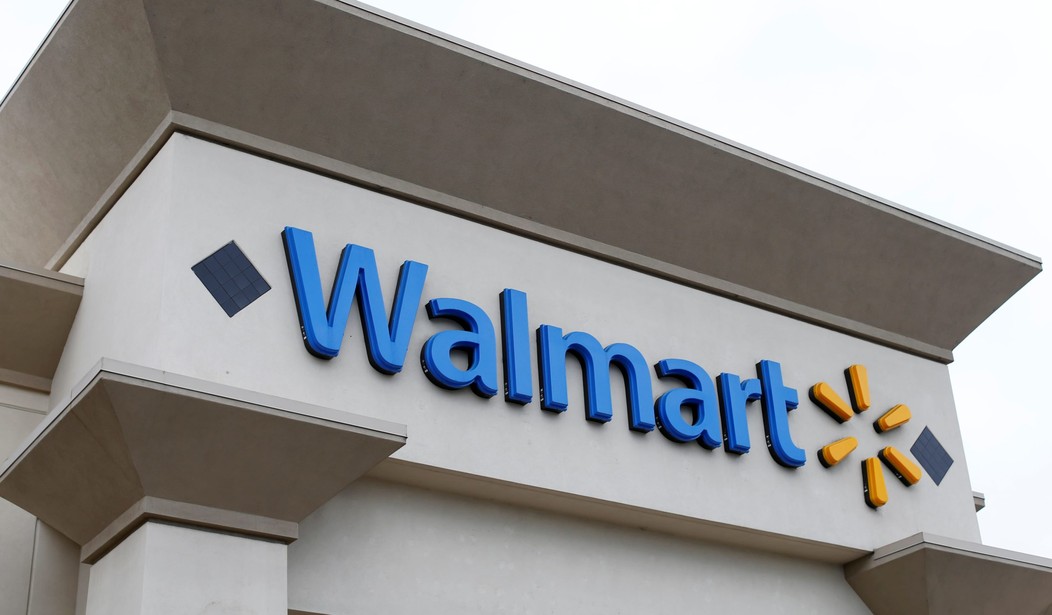On Monday, Walmart announced that its pharmacies will only allow certain customers to obtain a 7-day supply of opioids, in an attempt to combat the nationwide opioid crisis. This move demonstrates that companies in the free market can take the lead in combatting this kind of massive health crisis, without the overburdening hand of government.
“We are taking action in the fight against the nation’s opioid epidemic,” Marybeth Hays, Walmart’s executive vice president of Health & Wellness and Consumables, said in a statement. “We are proud to implement these policies and initiatives as we work to create solutions that address this critical issue facing the patients and communities we serve.”
On average, 115 Americans die each day from an opioid overdose, according to the U.S. Centers for Disease Control and Prevention.
In response, Walmart and Sam’s Club pharmacies will limit “initial acute opioid prescriptions to no more than a seven-day supply.” They also set the daily maximum to 50 miligrams of morphine. “Where state law for fills on new acute opioid prescriptions is less than seven days, Walmart and Sam’s Club will follow state law.” This policy will come into effect in 60 days.
On January 1, 2020, the pharmacies will require e-prescriptions for controlled substances, since e-prescriptions have proven to be less prone to errors, cannot be altered or copies, and are electronically trackable.
By the end of August, Walmart pledged to implement the controlled substance tracking tool NarxCare, in states that allow access. NarxCare is a tool that helps pharmacists make dispensing decisions and provides pharmacists with real-time interstate visibility.
Walmart and Sam’s Club will also move opioid reversal medication naloxone behind the pharmacy counters of stores by August, when allowed by state law. Furthermore, the company has declared that pharmacists will provide naloxone recommendations for patients who might be at risk for overdose.
Finally, Walmart will conduct additional training and education on opioid stewardship for its pharmacists.
Walmart and Sam’s Club also launched the Walmart Opioid Stewardship Initiative, giving free DisposeRx packets to safely destroy leftover opioids without leaving home. Pharmacists also counsel patients on the CDC’s guidelines for pain management. Finally, the program involves sponsoring youth-based curriculums on the risks associated with prescription drug abuse.
Last month, House Minority Leader Nancy Pelosi (D-Calif.) suggested that marijuana and yoga could be major solutions to the opioid crisis. She said this just after lamenting that the federal government would only spend $3 billion — with a “B” — on the opioid crisis in the next two years.
While there may be a role for the federal government in addressing the opioid crisis, Canadian professor Jordan Peterson suggested a personal responsibility ethic which likely would prove more effective. In his book “12 Rules For Life: an Antidote to Chaos,” Peterson suggested Americans often violate his second rule, “Treat yourself like someone you are responsible for helping.”
Pet owners may prove more responsible in caring for their pets than in caring for themselves. Why? Partially because they think they don’t deserve it, but also because they don’t think of themselves as someone they are responsible for helping. This may sound simple, but personal attitudes like this can wreak devastating effect without a person realizing it.
Walmart has pledged to help people take care of themselves, through education and by restricting their access to opioids. The principle of subsidiarity suggests that the most effective solution to any problem can be found with the smallest, lowest, or least centralized competent authority. Political decisions should be taken at a local level, and individual responsibility should be championed over political demands.
Walmart is a better solution to the opioid crisis than the federal government, and individuals themselves are the best solution. Empowering individuals to make their own responsible decisions on opioids, whether through education programs, prescription limits, or doctor suggestions, should be the primary goal of efforts to combat the opioid crisis.
Walmart’s move should be welcomed as a step in the right direction, but ultimately Americans should be able to responsibly control their opioids, enforced 7-day limit or not. The Walmart education efforts suggest this may be the end goal, and that is commendable.









Join the conversation as a VIP Member